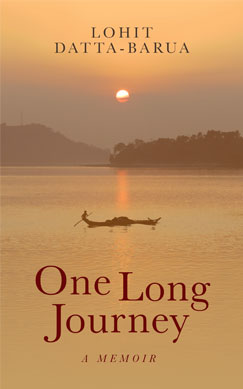 Jonathan Slevin and the Slevin Writer Team: research, rewrite, edit, design/layout/production, publication
Jonathan Slevin and the Slevin Writer Team: research, rewrite, edit, design/layout/production, publication
The extraordinary story of Lohit Datta-Barua, born into poverty along the banks of the mighty Brahmaputra River in northeastern India. A terrible secret surrounded his birth, death stalked him, and caste-based taboos blocked his marriage. He came to America with $8 and became a world-class engineer. As an inspiring contributor to social justice, Datta-Barua continues to touch people’s lives.
Amazon Reviews: I read this moving, lyrical memoir in a day. It is an honest account of the author’s American immigrant story (important in its own right), but it reads like a mythic novel. Layered and rich.
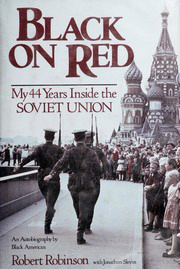 Robert Robinson with Jonathan Slevin
Robert Robinson with Jonathan Slevin
Robert Robinson went as a machinist to the USSR on a one-year contract and 44 years later he managed to get out. He strived and survived in a seemingly hopeless situation. Robinson’s gripping and historically singular autobiography provides a ground-level perspective on the reality of life in the Soviet Union which is intensely relevant to U.S.–Russia relations today. Black on Red was recognized with a front-page Book World review in The Washington Post.
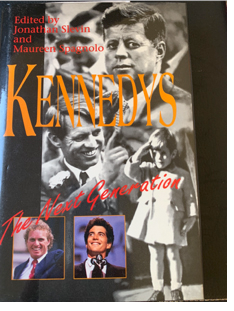 Jonathan Slevin, editor & contributing author
Jonathan Slevin, editor & contributing author
Kennedys: The Next Generation. Twenty-seven years after John F. Kennedy was assassinated and 22 years since America lost his brother Bobby, the young Kennedys are grown and have faced challenges as heirs of the family legacy. Kennedys: The Next Generation provides an up-to-date look at the cousins, in 28 biographical essays.
Amazon Reviews: I’m glad someone is doing the right kind of book on the young Kennedys. It’s about time people knew what they’re about and what some of them are already accomplishing. — John Seigenthaler, Editorial Director, USA Today
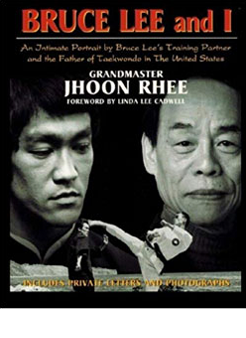 Jonathan Slevin, editor, and publisher
Jonathan Slevin, editor, and publisher
Bruce Lee and I is Jhoon Rhee’s intimate account of the 10-year friendship between these two martial arts legends. This beautifully designed book has 15 chapters, 22 photos, 19 reproductions of private letters from Bruce Lee to Jhoon Rhee from the private Jhoon Rhee collection that include Bruce Lee’s poetry, an index, and footnotes.
— Amazon top 100 book
— Bruce Lee would be very proud of the success of his friend, Jhoon Rhee. They had a teacher-teacher relationship, one built on mutual respect. You will gain insights into the lives of both of these extraordinary men by reading these memorable stories. — Linda Lee Cadwell, wife of the late Bruce Lee
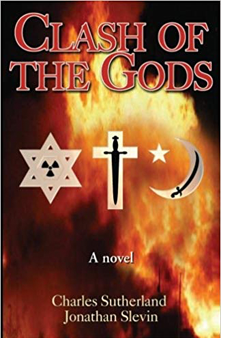 Charles Sutherland and Jonathan Slevin
Charles Sutherland and Jonathan Slevin
A riveting, fictional journey about how the quest for oil mixes with religious convictions to create the scenario for global nuclear war. The reader is brought into the inner sanctum of the world’s political leadership and the heart of the intelligence communities of the U.S., Israel, Russia, and Iran as they play a deadly cat and mouse games. Based on hundreds of interviews worldwide.
Reviews:
— Clash of the Gods is a unique and marvelous combination of the spy/adventure novel… Creating characters that are believable and multi-dimensional, the authors spin a page-turning tale that is at once riveting and distressingly realistic. Review by Michael Scheuer, who ran the CIA’s al-Qaeda operations, Insight Magazine
— The novel is flawless in its description of the U.S.’s complex national security structure. Review by Rowan Scarborough, a national security reporter, The Washington Times
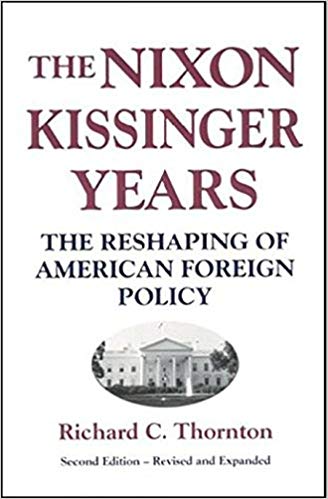 Jonathan Slevin, editor, and publisher
Jonathan Slevin, editor, and publisher
From 1968 to 1976, the dominant issue of American foreign policy was attempting to formulate a response to steadily increasing Soviet military power. Yet, as a result of the mire of Watergate, clout in the area of US-Soviet relations during this period slipped from the hands of Richard Nixon to those of Secretary of State Henry Kissinger. Richard Thornton argues that Watergate was a “set up” by John Mitchell and members of the Eastern wing of the Republican Party to oust Nixon. At the heart of Thornton’s examination lies the assessment of how Kissinger was able to move the United States away from Nixon’s traditional containment policy to “tri-lateralism” and a greater dependence on collective security organizations.
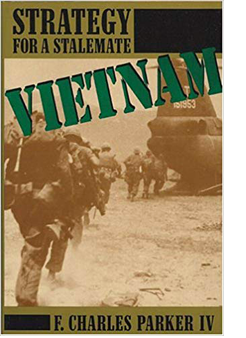 Jonathan Slevin, editor, and publisher
Jonathan Slevin, editor, and publisher
A thorough and well-researched look about how U.S. politics degraded military strategy and resources, and how American leadership failed to understand the foreign policy implications of the Vietnam War. The author exposes the Johnson and McNamara decisions to pursue a draw in the Vietnam War for political reasons. Parker also examines the geopolitical strategic picture between countries that drive operational decisions.
